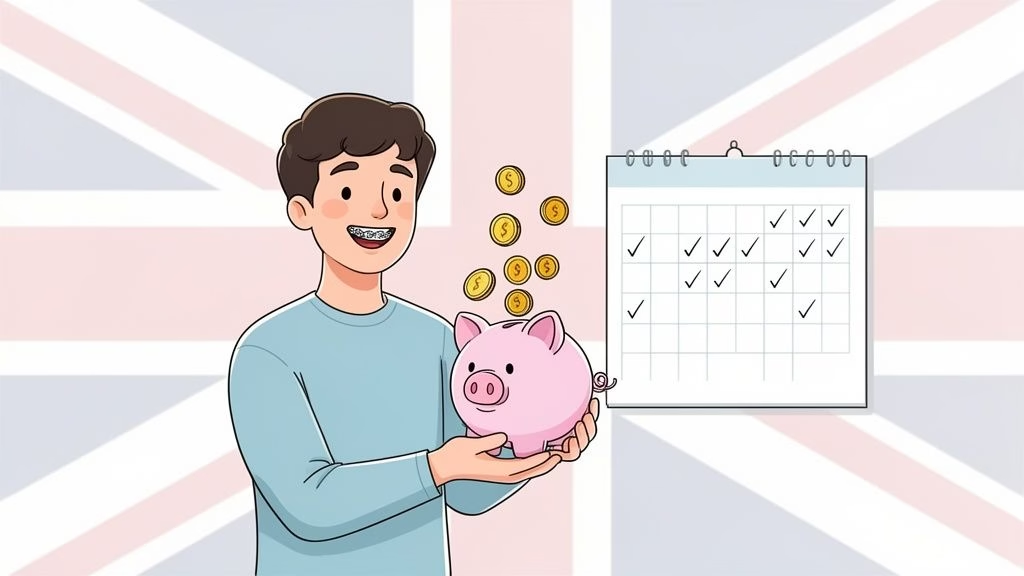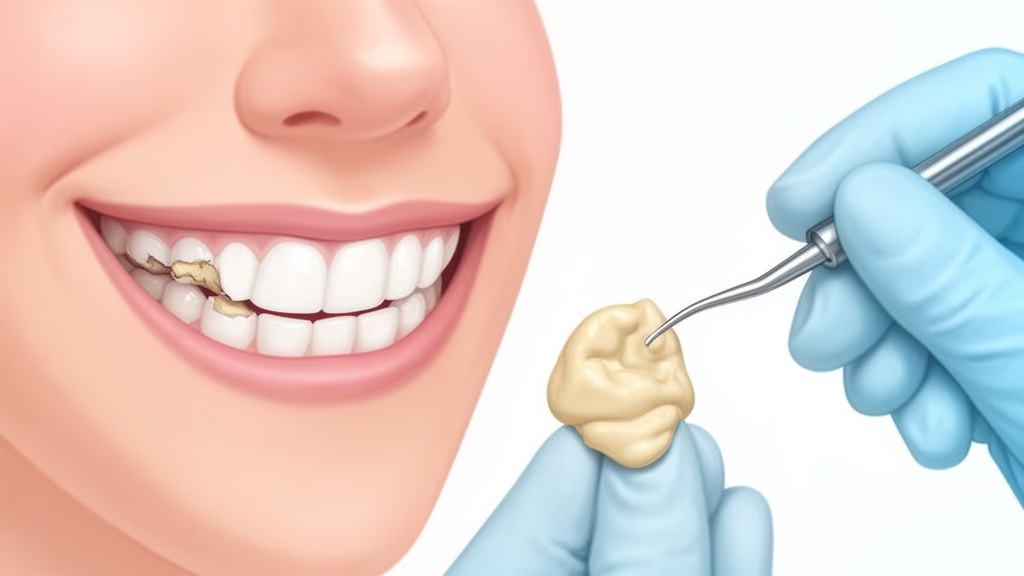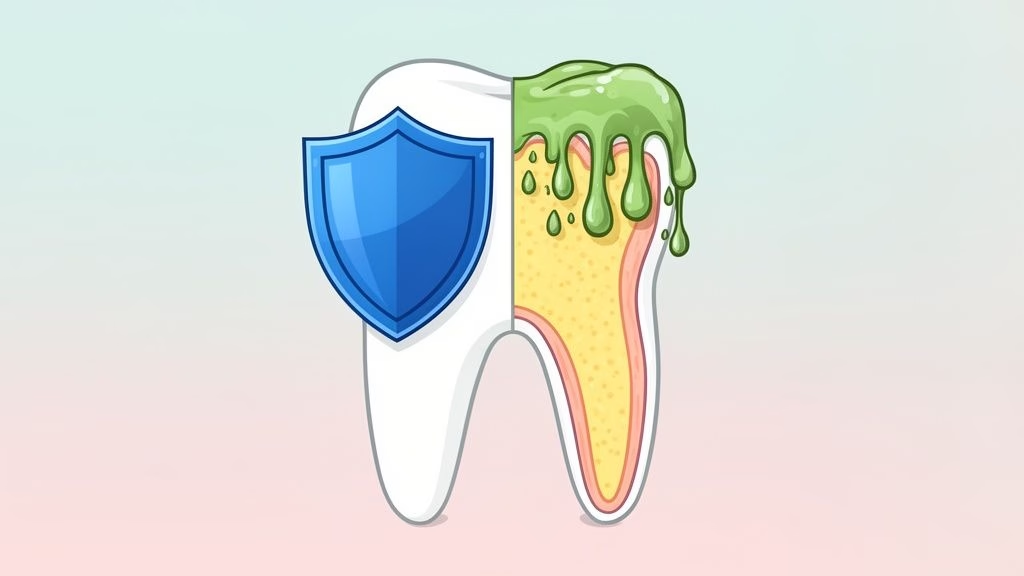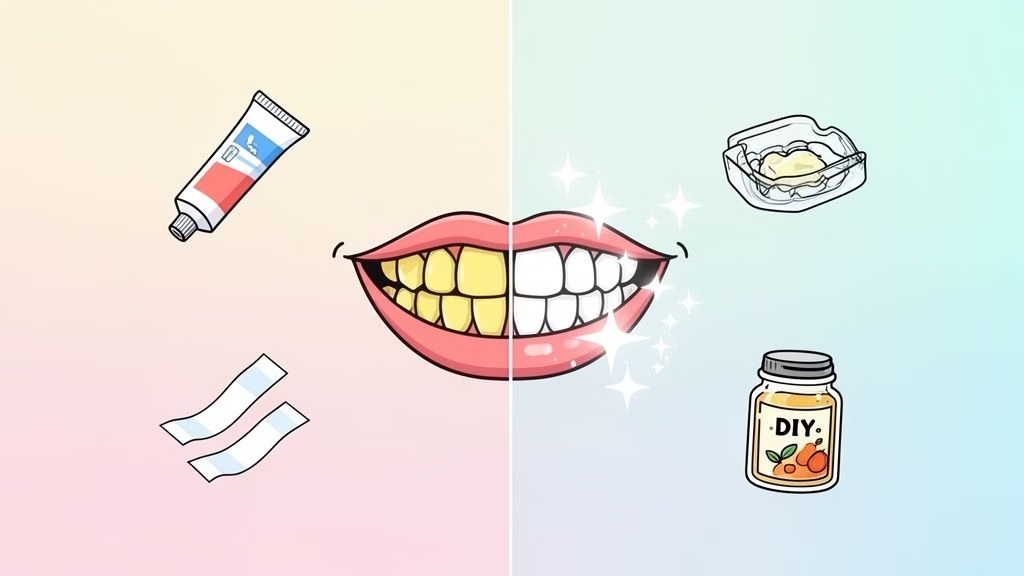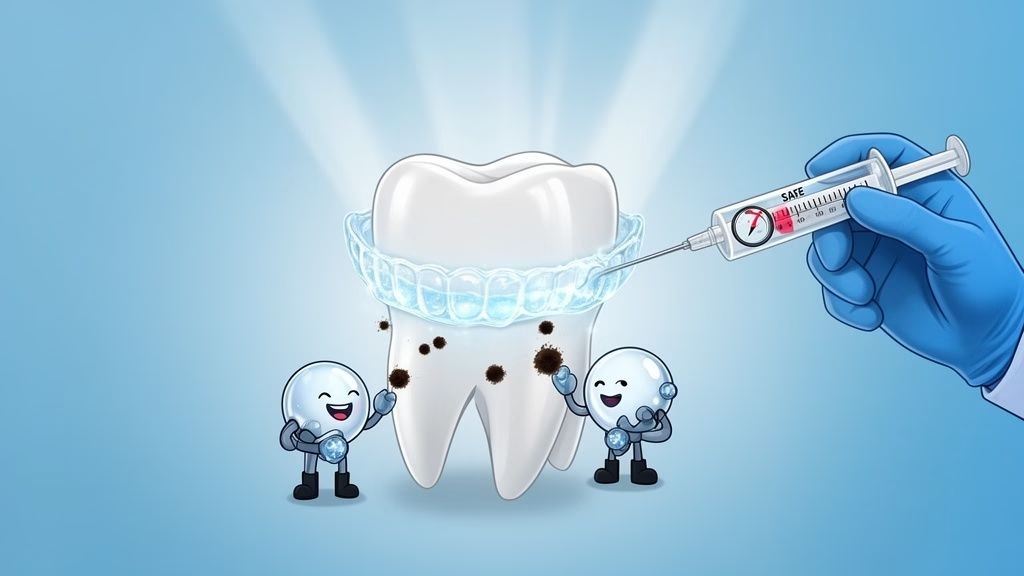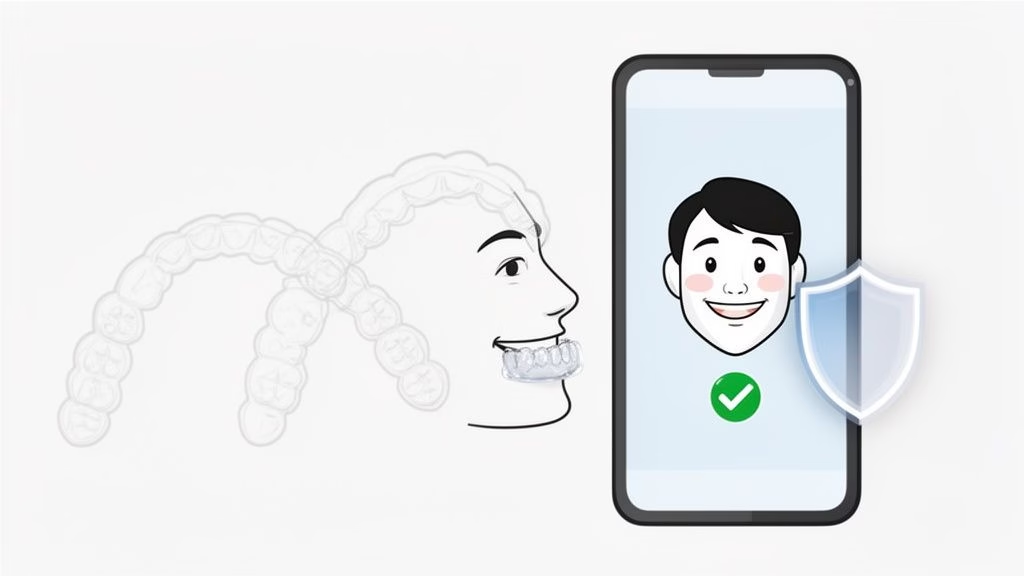24 Hour Emergency Dentist: Expert Guide to Immediate Dental Care

Understanding Modern Emergency Dental Care Needs
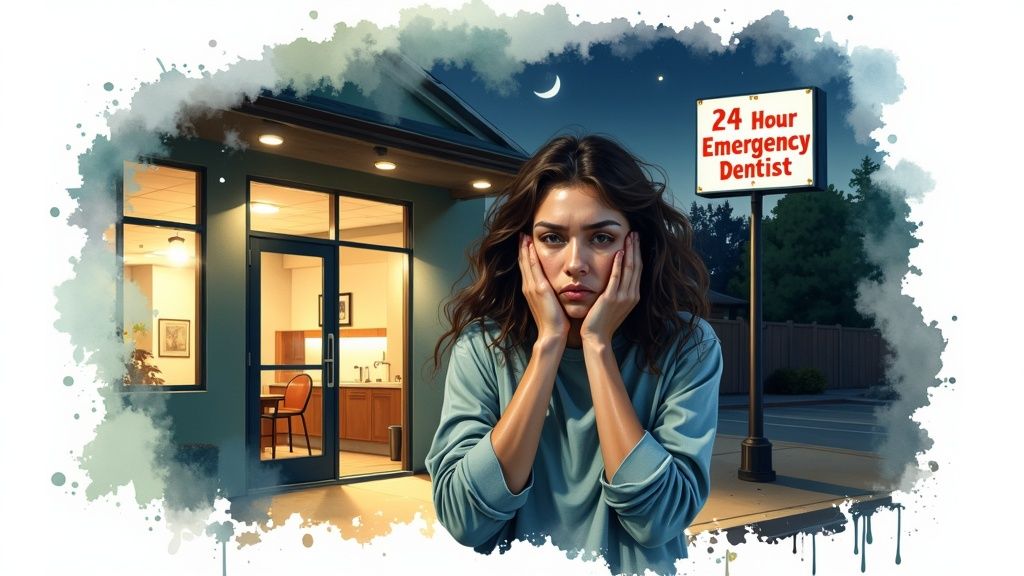
The need for 24-hour emergency dental care has become essential as traditional office hours no longer meet most people’s needs. Many patients now require dental services outside standard business hours, making access to emergency dentists crucial for maintaining oral health.
The Rise in Demand for Immediate Dental Care
More people seek emergency dental care due to several key factors: work commitments that make regular appointments difficult, unexpected dental problems, and better awareness of oral health importance. When dental emergencies strike, like severe toothaches, having quick access to professional care can make a significant difference. This highlights why readily available emergency dental services are now a fundamental part of healthcare.
The Impact of Dental Emergencies on Quality of Life
Untreated dental emergencies can seriously affect daily life through intense pain, eating difficulties, and possible infections. These issues often lead to missed work or school days and cause considerable stress. Recent data shows growing demand – the NHS 111 helpline has received calls from 4.7 million people with dental concerns. Daily calls increased from 2,024 in 2020/21 to 3,327 in 2023/24, with many cases requiring urgent attention. Learn more about these statistics here.
Adapting to Meet Evolving Patient Expectations
Dental practices are finding new ways to serve patients better through extended hours, weekend appointments, and virtual consultations. Some clinics now work with services like the Toothfairy app to provide remote assessments and help patients get care quickly. These changes ensure people can find emergency dental help whenever needed, marking an important shift in how dental care is delivered.
Recognising True Dental Emergencies
Understanding when to visit a 24-hour emergency dentist can make the difference between saving a tooth and needing major dental work. Let’s explore how to identify real dental emergencies that need immediate care.
Key Indicators of a Dental Emergency
Some dental problems require fast action. A knocked-out tooth needs treatment within 30 minutes for the best chance of saving it. Severe tooth pain, particularly with swelling or fever, may signal an infection that needs urgent attention. When pain disrupts your sleep and daily activities, it’s time to seek emergency care.
- Heavy Bleeding: Ongoing bleeding after injury or dental work needs immediate evaluation
- Facial/Mouth Swelling: This could mean an infection requiring quick treatment
- Mouth Injuries: Broken or displaced teeth from accidents need fast care
Don’t ignore these warning signs – see an emergency dentist right away.
Dental Issues That Can Wait
Not every dental problem is an emergency. A lost filling or mild toothache can usually wait for a regular appointment. Still, get these issues checked soon to prevent them from getting worse. Even a small chip, while not urgent, can weaken your tooth over time if left untreated.
Assessing Your Dental Pain and Risk Factors
Your health history plays a big role in deciding how quickly to get care. People with diabetes face higher infection risks and should seek treatment sooner for dental problems. Pregnant women also need prompt dental care to protect their health and their baby’s well-being. Research shows that pain drives most emergency dental visits, so take significant discomfort seriously.
Knowing when to get emergency dental care helps protect your oral health. By spotting true dental emergencies, you can get help when it matters most and avoid serious complications.
Securing Reliable Emergency Dental Care
Finding a reliable 24-hour emergency dentist shouldn’t be a last-minute scramble. Taking a few key steps now can make a huge difference when dental emergencies arise. The key is knowing your options and establishing connections before urgent care is needed.
Identifying Trustworthy Emergency Dental Providers
Begin by researching emergency dental providers in your area. Check reviews, credentials, and ensure they specialize in urgent dental care. Look for key services like emergency tooth fillings and trauma care. Make a shortlist of potential providers within easy reach. Personal recommendations from friends, family and your regular dentist can help identify trusted options.
Understanding Emergency Dental Facility Types
Different facilities offer varying levels of emergency care. Dedicated emergency dental clinics typically handle a wide range of urgent cases. Some general dental practices also reserve slots for emergencies during and after hours. Consider facilities offering emergency cavity fillings, after-hours dentist care, and walk-in dentist services. The right choice depends on your specific needs and location.
Accessing Quality Emergency Care
Understanding emergency dental networks helps manage costs through insurance coverage. While staying in-network is ideal, prioritise getting needed care in true emergencies, even if out-of-network. Rural residents may face limited access to 24-hour emergency dental care. Virtual consultations through teledentistry platforms can help bridge gaps. The NHS has worked to improve emergency dental access in the UK, offering 24/7 urgent care integrated with other services. Learn more about NHS urgent dental care here.
Be proactive in understanding your emergency dental care options. Having a plan in place gives you confidence to handle unexpected dental issues effectively and get the quality care you need.
Managing Emergency Dental Care Costs
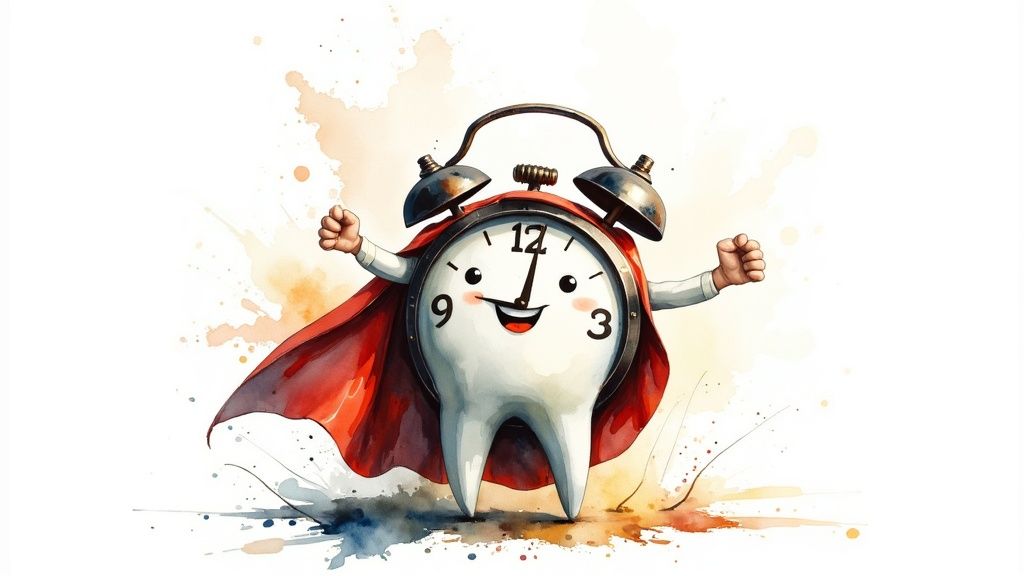
A dental emergency can hit your wallet hard when you least expect it. But don’t worry – there are smart ways to handle the costs of seeing a 24-hour emergency dentist. Let’s look at some practical ways to manage these expenses and find affordable care options.
Understanding Emergency Dental Procedure Costs
The price tag for emergency dental work depends on what needs to be done. Simple fixes like emergency tooth fillings usually cost less than major work like root canals or pulling teeth. For instance, a basic filling might be a few hundred dollars, while complex extractions can run much higher. Knowing what treatment you need helps you estimate the potential cost.
Decoding Your Dental Insurance Coverage
Good dental insurance can save you a lot of money. Take time to read through your policy details, especially for emergency services. Pay attention to these key numbers: your annual maximum, deductible, and co-insurance. Also check if you need pre-approval for certain procedures. Understanding these details helps you avoid surprise bills and get the most from your coverage.
Practical Approaches to Managing Unexpected Dental Expenses
Even with insurance, emergency dental work can strain your budget. Consider starting an emergency dental fund – even small regular deposits add up and provide peace of mind when you need it.
- Negotiating Costs: Many 24-hour emergency dentists will work with you on pricing. Don’t be shy about asking about your options.
- Payment Plans: Ask about spreading payments over time – this can make big bills more manageable.
- Financial Assistance Programs: Look into dental grants and special healthcare loans. These programs often help people who qualify get needed care.
Maximizing Insurance and Exploring Payment Options
When possible, stick with dentists in your insurance network to keep costs down. However, during an emergency, getting quick care from a 24-hour emergency dentist might mean going out-of-network. Keep all your receipts and file insurance claims right away. If you have a Flexible Spending Account (FSA) or Health Savings Account (HSA), use these tax-advantaged funds for dental care. They let you set aside money before taxes for healthcare costs, reducing your overall expenses. With some planning and knowledge of your options, you can better handle the financial side of emergency dental care.
Navigating Your Emergency Dental Visit
A visit to an emergency dentist can feel overwhelming. But having clear expectations can help reduce stress and enable better communication with your dental care team. Here’s what typically happens during an emergency dental visit, from the moment you arrive through aftercare.
Triage and Initial Assessment
When you first arrive at the emergency dental clinic, you’ll go through a triage screening. The dental team will quickly evaluate your condition to determine how urgent your case is and prioritize care accordingly. They’ll ask about your symptoms, examine your mouth, and may take X-rays. For example, a knocked-out tooth needs immediate treatment, while a small chip may be addressed after more critical cases. This helps the dentist understand exactly what care you need.
Diagnostic Process and Treatment Planning
Following triage, the dentist performs a detailed examination using tools like X-rays and intraoral cameras to identify the specific problem. They’ll explain what they find and discuss your treatment options. A severe toothache, for instance, might require a filling or root canal. Having a clear understanding of your diagnosis and treatment plan helps you make smart decisions about your care.
Treatment Approaches and Techniques
Emergency dentists can handle many dental issues, from fillings to extractions. They use modern techniques and tools to provide fast, effective treatment. Local anesthesia keeps you comfortable during procedures. The main goal is to quickly relieve pain and address the immediate problem. Quick relief is essential when dealing with dental emergencies.
Communicating With Emergency Dental Staff
Good communication plays a key role in emergency dental care. Be specific when describing your symptoms – when the pain started, how intense it is, and what makes it worse or better. Don’t hesitate to ask questions about your diagnosis, treatment choices, and aftercare. Clear communication helps ensure you get the best care possible. Tools like the Toothfairy app even allow virtual consultations before in-person visits, which can help ease anxiety.
Understanding Treatment Options and Ensuring Optimal Outcomes
Your dentist will explain all available treatment choices and recommend the best approach for your situation. Make sure you understand the benefits and risks before deciding. After treatment, you’ll receive detailed instructions for recovery. Following these carefully helps prevent complications. The goal is both immediate relief and long-term oral health. Your dentist may recommend follow-up visits with your regular dentist for ongoing care and prevention.
Building Your Dental Emergency Prevention Plan
A good prevention plan is essential for protecting your oral health and avoiding unexpected visits to a 24-hour emergency dentist. With the right approach, you can catch issues early and maintain healthy teeth and gums for years to come.
Key Daily Prevention Habits
Regular dental checkups and cleanings help identify potential problems before they become serious. While basic oral care may seem obvious, consistent daily habits make a big difference in preventing emergencies.
Essential daily practices include:
- Brushing teeth twice daily with fluoride toothpaste
- Daily flossing to remove plaque between teeth
- Using antibacterial mouthwash to fight bacteria
Sticking to these basics helps stop many common dental issues before they start.
Watch For Warning Signs
Pay attention to changes in your oral health – they often signal bigger problems ahead. Common warning signs include ongoing bad breath, bleeding when brushing, and tooth sensitivity. For example, gums that bleed easily could point to gum disease, which needs prompt treatment to prevent complications.
Stock a Home Dental Care Kit
Keep basic supplies on hand for minor dental issues. A well-stocked kit should include:
- Sterile gauze for bleeding control
- Small container for storing damaged teeth
- Temporary filling material and dental wax
These items help you handle initial care until you can see your dentist.
Work With Your Dentist
Build a good relationship with your dentist through regular visits. Talk about how your diet and lifestyle affect your teeth. Most dentists emphasise limiting sugar intake since it directly causes decay. Schedule checkups consistently to get personalised advice and catch problems early.
Good dental health comes from daily care routines combined with smart lifestyle choices. For quick access to dental care, including emergencies, try Toothfairy – an app that connects you with qualified dentists anytime you need them. Start protecting your smile today!
Last updated on August 4, 2025

Toothfairy Care Team
Toothfairy, is the world's smartest dental app, that connects patients to a dentist for a range of issues, from emergencies, cosmetics, prescriptions to virtual exams.
Toothfairy Care Team
Toothfairy, is the world's smartest dental app, that connects patients to a dentist for a range of issues, from emergencies, cosmetics, prescriptions to virtual exams.
